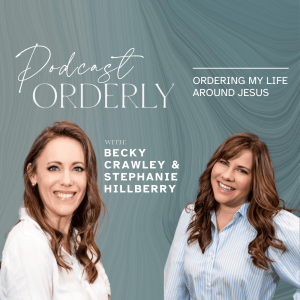
Friday Sep 20, 2024
In Real Life With Jesus (IRL)
Today, we’re diving into a crucial topic: what it means to participate in community life together in today’s busy culture. In a world that’s more connected than ever through technology, it seems that genuine community is harder to come by. So, why is real, in-person community more important now than ever before?
This idea really struck me earlier this year when I was taking a course from The Bible Project. The instructor talked about the Greek word "koinonia," which is often translated as “fellowship.” But here’s the thing—the word "fellowship" doesn’t really capture the full meaning anymore. To truly understand what participation in community looks like, we need to rethink how we approach "community" today.
Defining Community Today
I stumbled across a fascinating discussion on a Substack called After Babel. They explored how YouTube defines community, which reflects a lot about how we think about participation in the digital world:
YouTube defines its community like this:
- Creators: The people or brands producing content.
- Viewers: The people who watch and engage with the content.
- Comments: The interaction between creators and viewers.
- Subscriptions: Viewers subscribing to channels to become a part of that creator’s community.
- Engagement: Likes, shares, and comments are the currency of interaction that build this sense of community.
At first glance, this seems like a simple, plug-and-play way to be part of a “community.” Let’s break down the positive attributes of these virtual communities:
- Becky: "They’re easy to plug into. You can find content that really speaks to you and instantly be a part of something bigger."
- Steph: "You can find communities that are super specialized, based on your interests, stage of life, or values, which can be hard to find in your physical location."
- Becky: "And they can help you make and keep friends beyond your local community—people you might never meet otherwise."
- Becky: "And they can help you make and keep friends beyond your local community—people you might never meet otherwise."
But, of course, there are downsides to these virtual communities as well:
- Steph: "One big one is the lack of consequences for being rude. Because interactions aren’t face-to-face, people often say things they wouldn’t dream of saying in person."
- Becky: "Right. It’s also one-dimensional. You don’t get the verbal cues, body language, or tone you’d get in face-to-face relationships."
- Steph: "There’s also an increase in loneliness and depression. It’s strange because you can be so 'connected' online but feel totally disconnected from real life."
- Becky: "And finally, there’s no skin in the game. It’s easy to be part of an online community without any real commitment or sacrifice."
Real Community in the Bible
Now, let’s compare this to what the Bible says about real, in-person community. One of the best examples of Christian community comes from Acts 2:
"They devoted themselves to the apostles’ teaching and to fellowship, to the breaking of bread and to prayer. Everyone was filled with awe at the many wonders and signs performed by the apostles. All the believers were together and had everything in common. They sold property and possessions to give to anyone who had need. Every day they continued to meet together in the temple courts. They broke bread in their homes and ate together with glad and sincere hearts, praising God and enjoying the favor of all the people. And the Lord added to their number daily those who were being saved." — Acts 2:42-47 NIV
This passage gives us a picture of real, messy, face-to-face community. The early church didn’t just meet up for Sunday services—they shared life together. They broke bread, prayed, sold possessions to meet needs, and gathered daily in homes and in the temple. It wasn’t always perfect, but they were committed to one another in a way that went far beyond digital interactions.
Likewise, in 1 Corinthians, Paul writes about how the early church functioned as one body, with each member playing a crucial role. He emphasizes the need for mutual concern and participation in one another’s lives:
"So that there should be no division in the body, but that its parts should have equal concern for each other. If one part suffers, every part suffers with it; if one part is honored, every part rejoices with it. Now you are the body of Christ, and each one of you is a part of it." — 1 Corinthians 12:25-27 NIV
This kind of community requires vulnerability, commitment, and showing up. You can’t hide behind a screen when you’re sitting at someone’s kitchen table, breaking bread, or praying together.
Why It’s More Important Now Than Ever
In today’s culture of busyness, virtual connections, and compartmentalized lives, finding time for real community can feel impossible. But we’re called to more than just "fellowship" as we know it today. We’re called to participate in each other’s lives, even when it’s messy and inconvenient. That’s where real transformation happens—when we’re willing to show up for one another, day after day, in big ways and small ways.
No comments yet. Be the first to say something!